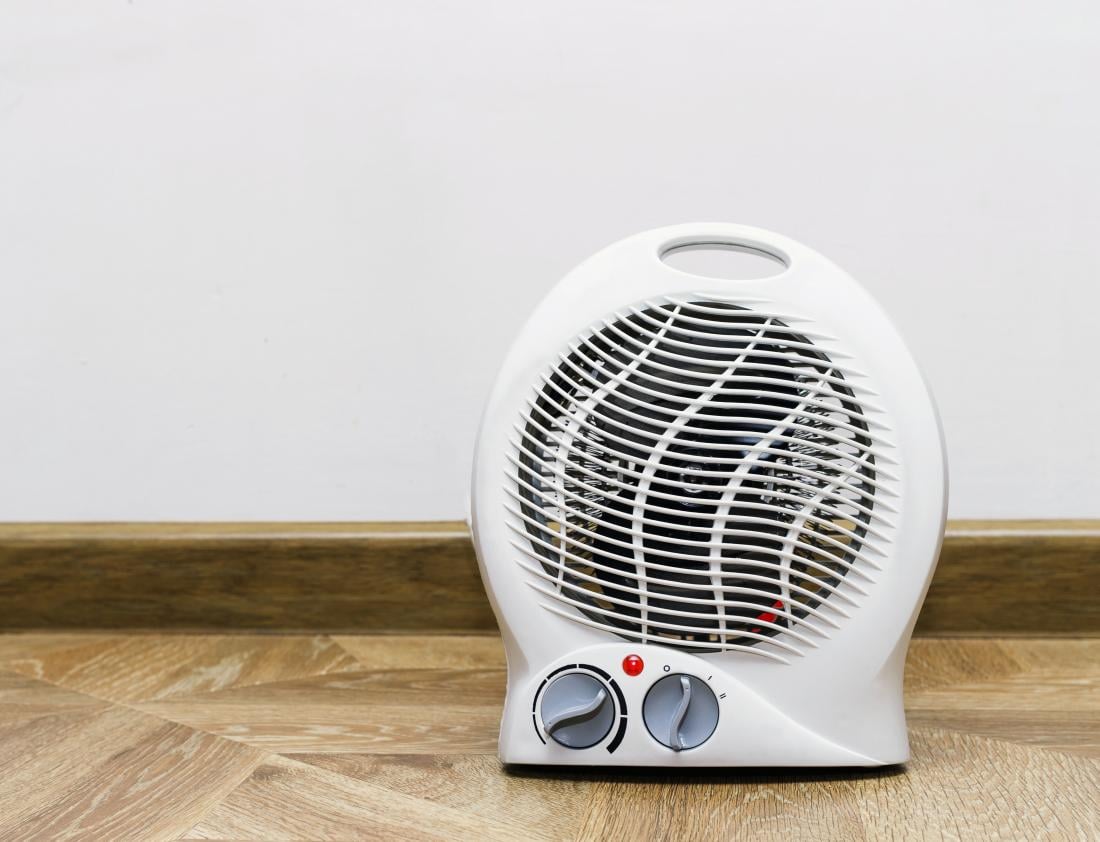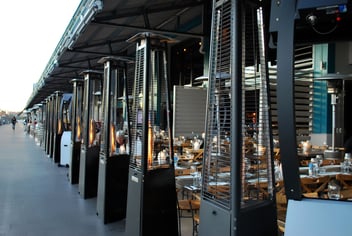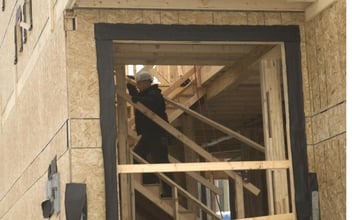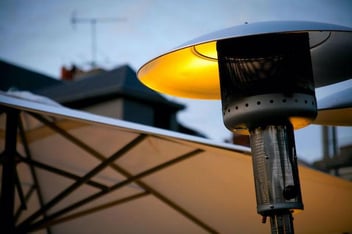As temperatures drop across the province, many British Columbians will be turning to their space heaters to stay comfortable. If you’re looking to warm up a specific room, an electric space heater might be the safest, quickest, and greenest solution.
But before you plug in, there are some safety tips you should know.
Check for built-in safety features
While size (wattage) is an important consideration to keep in mind, look for built-in safety features such as tip-over and overheat protection. A tip-over switch will automatically turn off your space heater if it falls over or isn’t placed on a level surface. An overheat sensor (thermal cut-out) will detect when internal components of the heater are too hot to keep functioning safely and will turn the unit off.
Look for safety certifications
All space heaters should have a label of approval from a certification agency recognized by the Standards Council of Canada (for example, CSA, UL, ULC). This certification label may be located on the outside of the package, as well as on the unit itself. Read more information regarding acceptable certification marks.
Don't use extension cords
Never use an extension cord with your heater, because it will be too energy-intensive and can overheat the circuit — causing an electrical fire. For safest use, plug your space heater directly into an outlet and make sure it is the only thing plugged into that particular outlet.
Never leave your heater unattended
A space heater should never be left on in an empty room. If you leave a room or your house, turn off your heater and unplug it. And though it might be tempting to keep your room toasty while you sleep, do not leave your heater on overnight.
Place it somewhere safe
There are a few key danger zones you want to avoid when placing your heater. For example, never place your space heater near flammable materials such as bedding and curtains. Also be sure to keep your heater out of bathrooms, as moisture can damage the unit. And finally, choose an area that is protected from small children and pets. Check the manufacturer’s instructions for more placement information to help you find the right spot for your heater.
Consider replacement
When you take your space heater out for use, make sure to dust it off and check for any wear and tear. If there is any damage, the unit should be replaced. Depending on when your heater was made, you may consider upgrading to a new model — some older models do not have built-in safety features or may be less energy efficient than the ones produced today.
Bonus tip: did you know that modern technology often increases the demand on electrical systems in your home? This can pose safety risks, like arc-faults. Learn about arc-faults and how Arc-Fault Circuit Interrupters can keep your home safe.




